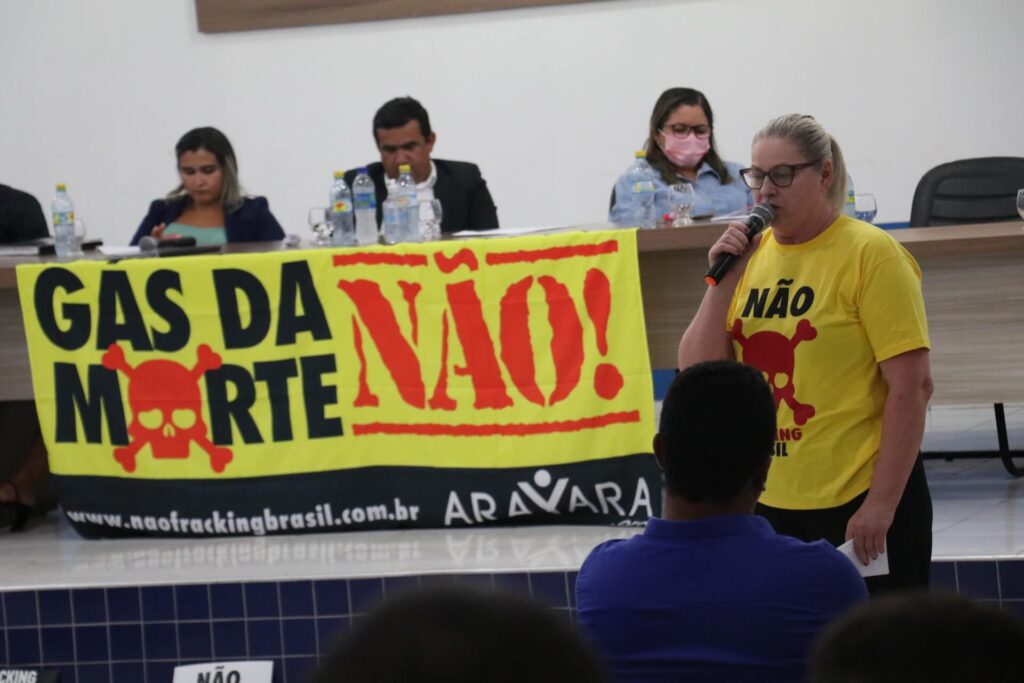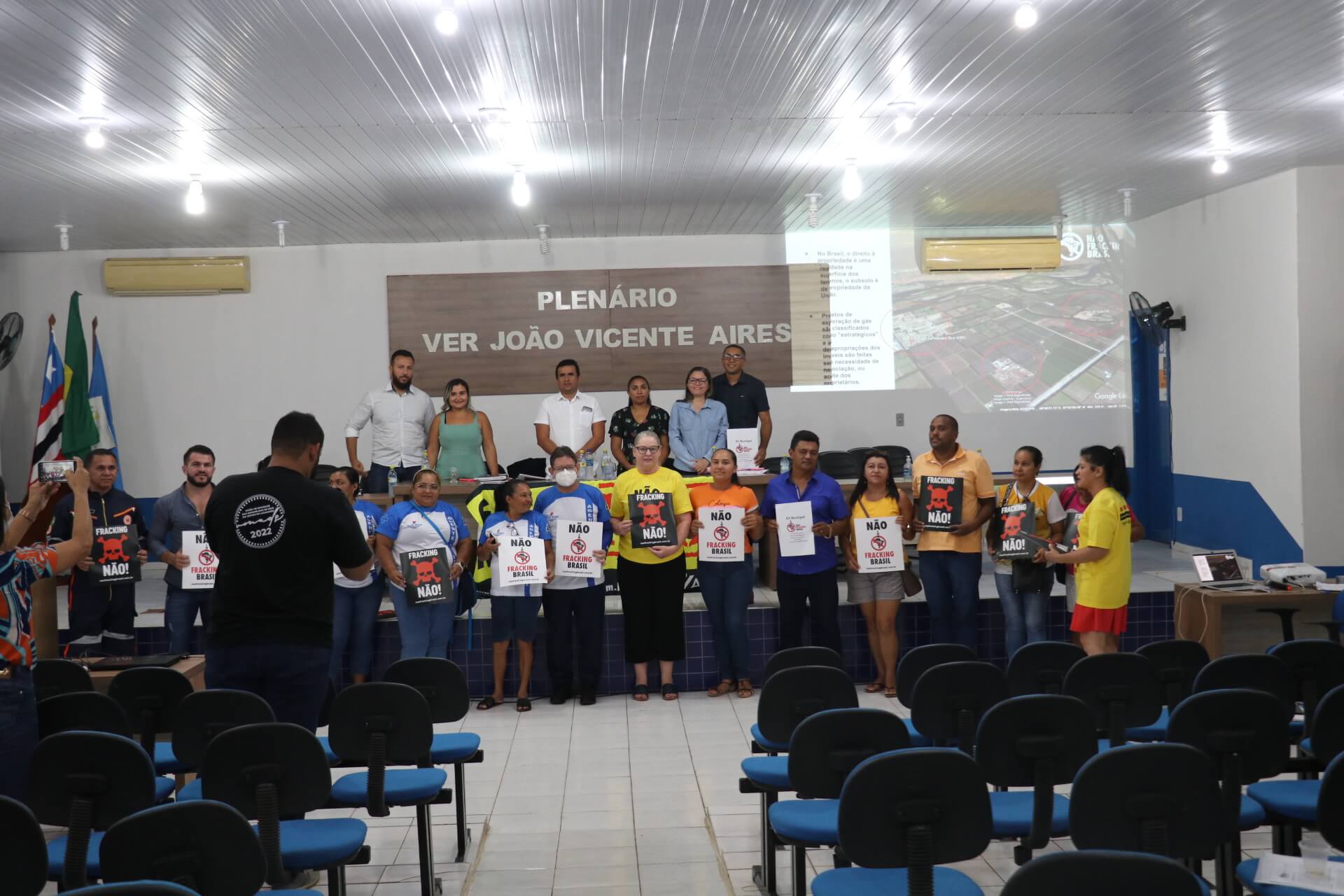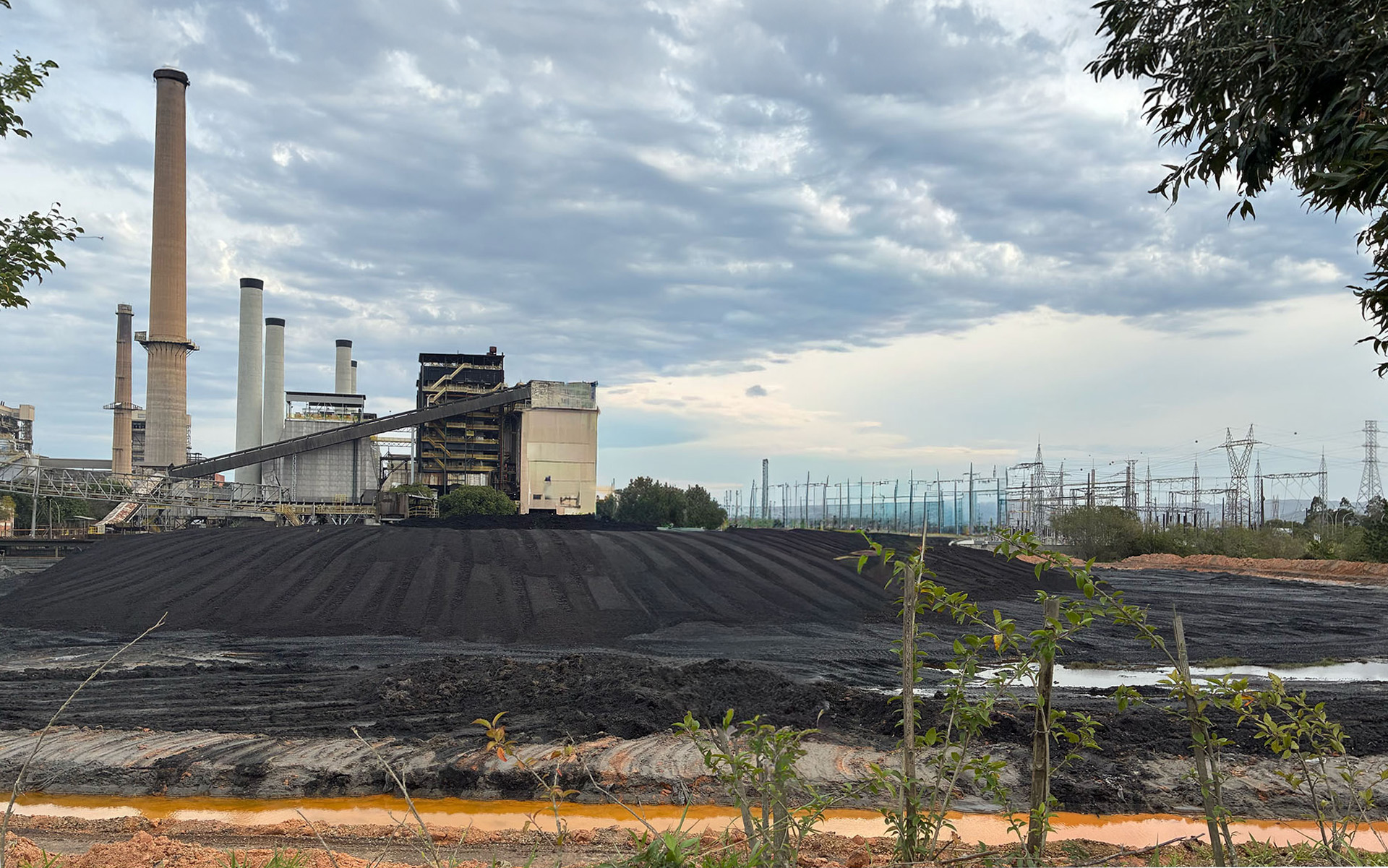Action by the No Fracking Brazil Coalition brings together opposition councilors and over 500 people
What is fracking?
Fracking – also known as hydraulic fracturing – is a process that involves injecting large volumes of water, chemicals, and sand at high pressure into underground rock layers to release trapped natural gas. Although this technique is already used in several countries, it is controversial due to its environmental and ecological damage, including groundwater contamination, greenhouse gas emissions, induced earthquakes, etc.
The technical team from COESUS – No Fracking Brazil Coalition for Water and Life, a campaign by the Arayara International Institute, was present in the municipality of Buriti Bravo, in Maranhão, to meet with councilors and inform them about the threats that fracking poses to the city and its population. This meeting took place on September 8, 2022, and brought together opposition councilors with a common goal: the defense of life, which is above any interest.
The name of the city is due to the abundance of buriti trees, a typical palm tree species in the region, and the Bravo River, which runs through the city. The importance of these palms in providing food and shelter for other species is significant. However, fracking results in pollution and contamination of water and plants, putting the symbolic palm tree of the city at risk.

Suelita Röcker, from No Fracking Brazil, speaking at the Buriti Bravo council
COESUS delivered a lecture to the population about fracking and its impacts. Over 100 people attended the event, both in person and virtually. The presence of the population is extremely important to exert pressure on the councilors, in order to prevent the installation of an industry that only brings immense damage to the city.
During the presentation, the COESUS team highlighted these risks, emphasizing the potential contamination of drinking water sources, air pollution, and the destruction of natural habitats. They also discussed the long-term consequences that fracking can have on the local economy and the tourism industry, as well as the impacts on the health of nearby communities.












